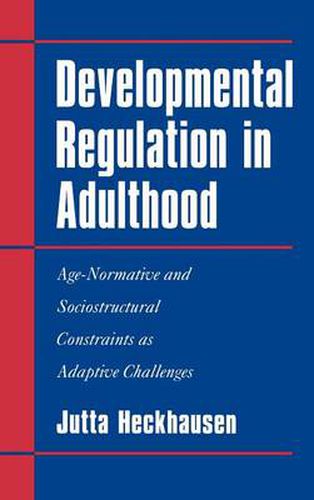Readings Newsletter
Become a Readings Member to make your shopping experience even easier.
Sign in or sign up for free!
You’re not far away from qualifying for FREE standard shipping within Australia
You’ve qualified for FREE standard shipping within Australia
The cart is loading…






Human behavior is very flexible, capable of influencing a huge variety of developmental paths. Therefore, development in the life course needs to be regulated. The life-span theory of control proposes that control of one’s environment is the key to adaptive functioning throughout the life span. This theory identifies the evolutionary roots and the life-span developmental course of human striving to control the environment (primary control) and the self (secondary control). Primary control is directed at producing effects in the external world, while secondary control influences the internal world so as to optimize the motivational resources for primary control. A series of studies illustrates the rich repertoire of the human control system to master developmental challenges in various age periods and developmental ecologies. Researchers in social and developmental psychology, sociology, and anthropology will welcome this new addition to the literature.
$9.00 standard shipping within Australia
FREE standard shipping within Australia for orders over $100.00
Express & International shipping calculated at checkout
Human behavior is very flexible, capable of influencing a huge variety of developmental paths. Therefore, development in the life course needs to be regulated. The life-span theory of control proposes that control of one’s environment is the key to adaptive functioning throughout the life span. This theory identifies the evolutionary roots and the life-span developmental course of human striving to control the environment (primary control) and the self (secondary control). Primary control is directed at producing effects in the external world, while secondary control influences the internal world so as to optimize the motivational resources for primary control. A series of studies illustrates the rich repertoire of the human control system to master developmental challenges in various age periods and developmental ecologies. Researchers in social and developmental psychology, sociology, and anthropology will welcome this new addition to the literature.